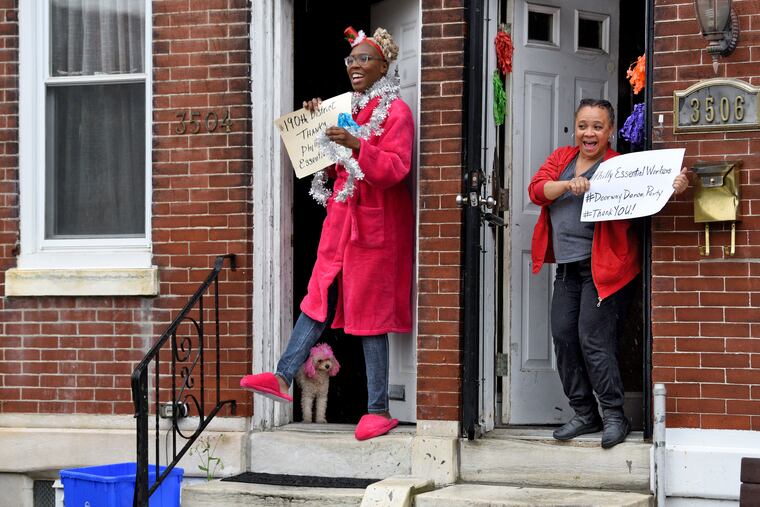Health-care workers are not the only COVID heroes | Opinion
The real heroes of this time are those that find themselves thrust into positions of risk that they never saw coming.

As the COVID-19 pandemic spreads across our country, even the most mundane parts of life are no longer a given. Many found their jobs vulnerable, while others found their vocations guided into uncharted waters. And some people learned that their work has become integral for society to function. This last bucket is our essential workers, our heroes of COVID-19.
To many, the term essential workers evokes the image of health-care workers covered in personal protective equipment (PPE), taking care of critically ill patients in a chaotic hospital. Indeed, these people are dedicated, compassionate, and yes — essential. Yet, this image only encompasses a fraction of the individuals currently risking their lives for the betterment of everyone else.
This image casts a large shadow on the many others who prop us up. Grocery store workers, public transport operators, delivery people, custodians — in and outside of clinical settings. These are the people performing thankless jobs so the rest of the country can sit safely in their homes. Where is their 7 p.m. applause throughout the streets?
Around 40% of the U.S. population has continued to go to work as essential workers, and less than half of them are health-care workers, yet they are the ones most lauded for their bravery.
In my opinion, this could not be a larger mischaracterization.
» READ MORE: Philly’s essential workers are risking their lives for low pay: ‘I can’t not go to work’
Doctors, nurses, and other clinical staff are currently performing their jobs as they are required to do. For most other workers, the new reality of their jobs has brought extraordinary risk outside of the scope of their normal practice. For health-care workers, they are simply performing the duties of their job.
This is not to minimize the difficulty and strife of these workers — indeed, the clinical environment now is the most stressful and rigorous it has likely ever been for those currently working. Furthermore, due to the ineffective national response, many health-care workers find themselves underequipped in conditions that are understaffed. Most who continue to work have to make their own sacrifices for the betterment of their patients. But those who chose to pursue a career in clinical medicine have taken an oath to care for patients, and in taking this oath, they signed a contract with society that they would care for those in need, regardless of the circumstance.
The forgotten heroes of this time are those who find themselves thrust into positions of risk that they never saw coming.
No amount of mental acrobatics could have led a bus driver or a grocery store clerk to foresee the role they are playing now. Yet, they and many others find themselves now more essential to societal function than any other worker. They are at risk every day and put in positions that they almost certainly never signed up for. Unlike health-care workers, these individuals did not choose a career that involved this level of risk.
These workers are often in jobs that do not afford them much respect in society. They are, oftentimes, a thankless workforce who is mistreated, disrespected, and undercompensated on a good day. Now they find themselves putting their health and safety at risk, while the world — and the economy — crumbles around them, and they go without sufficient training or the resources to ensure their own safety and the safety of their loved ones. Worst of all, many of these are undocumented, or on tenuous work visas — essential to us now, but not enough to have a clear path to citizenship. The narrative around this pandemic has focused mostly on the sacrifice of health-care providers, and too little about everyone else on the front lines.
Hatem Abdallah, originally from Cairo, is a medical student at the University of Pennsylvania.